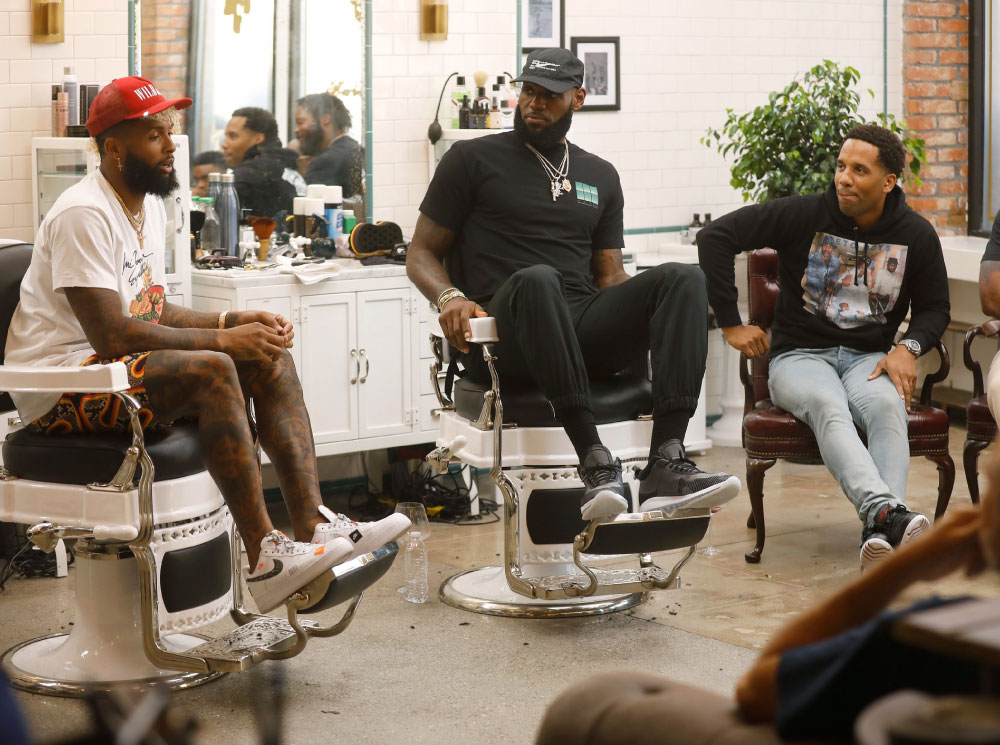
LeBron James and the Los Angeles Lakers were knocked out of the NBA playoffs last week by the Phoenix Suns. As expected, the LeBron haters were in full force on social media calling him overrated and a fraud. At 36 years old, LeBron James has been in the NBA for more than half of his life and is clearly on the downslope of his illustrious career. Few will argue that James is one of the all-time greats, but when it’s over most will not rate him higher than Michael Jordan, Magic Johnson, or Kobe Bryant. Looking at his career decisions and his ventures outside of basketball, it now seems obvious to me that LeBron James didn’t really set out to be the greatest basketball player of all time; his goals were much higher than that. James has been criticized and revered for his outspoken political views, and unlike Muhammad Ali and Jackie Robinson, LeBron James won’t be remembered as a historical figure in a political sense. However, his leadership from a cultural and business standpoint could be even greater.
Over the last few years, LeBron has been building a media empire, producing films and television shows, and several other projects. He recently invested in the company that owns the Boston Red Sox and other sports properties. Ever since he was a teenager, James somehow understood the value of his brand and he cultivated it with the savvy of a Fortune 500 CMO. LeBron James may be an old man in the sports world, but he is a baby in the business and media world. My sense is we have only seen a glimpse of what he will accomplish in his life. If you’re looking for role models, not many people are born with the athletic talent of a LeBron James, so what he accomplishes off of the court should be an inspiration to even those who don’t follow sports. The fact that a guy who earns nearly $100M a year has been planning for life after basketball for years, is what stands out most to me. This guy always saw basketball as a stepping stone to his next career.
It makes me think about how important it is to have a second and third act in life. I’ve always believed everyone needs to have a profession that earns them money, a passion that fulfills them from a creative standpoint, and a business or two that will earn them money after they are done working. That’s great, but I’m not sure even that is enough. What if, similar to a professional athlete, we could no longer do what we do today in any capacity. What if we had to do something entirely different? How many of us would be prepared for that?
I like to think that my life and career have had several chapters. As the CEO of NAHREP, I am blessed to lead a great organization that is making a difference in the world. I am fulfilled, but fulfillment doesn’t always put food on the table. Over the years, I have acquired a ton of relationships in a variety of fields, and some of those relationships have led to other projects that have been fun and generated some additional resources for my family. I’m pretty sure if I could no longer do what I currently do, I would be fine, but it does have me thinking. If the pandemic has taught us anything, it’s that the future is not guaranteed. Life is short, and it’s never too soon to start thinking about your next act.
Regardless of political persuasion, most people think the rhetoric of politics has gotten out of control. If you believe that, as I do, there IS something you can do about it. You can ask yourself whether you are helping or hurting the situation. I like to say that there are two types of people in the world: people who add stress and people who relieve stress. I think similarly, some people are adding to the political spectacle in the country, and others are at least trying for something better.
Gary's Blog will return next week.
This past week, the National Association of Realtors invited me to participate in a meeting with the NAR leadership and Jonathan Kanter, the Assistant Attorney General of the United States.
